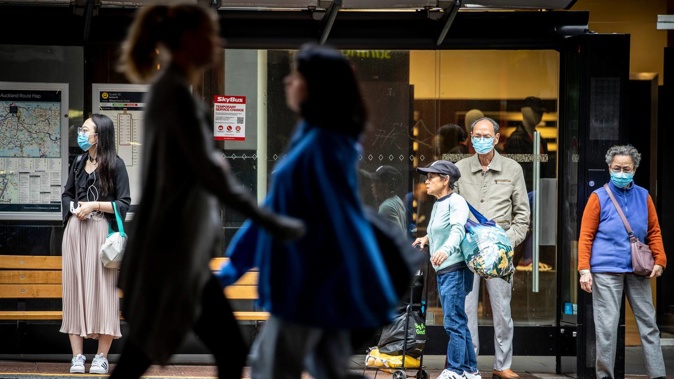
New Zealand's population growth slowed to its lowest rate in decades over the year to June – something put down to more deaths, but also fewer migrants arriving in the country.
Stats NZ's latest provisional estimate put New Zealand's population at 5.12 million as at June 30 – a slight increase of 12,700, or 0.2 per cent, on the year before.
"This is the lowest annual growth rate since June 1986 when the population barely changed (0.0 percent)," the agency said in a media release.
It attributed the meagre shift to a combination of natural increase, or births minus deaths, along with net migration – or migrant arrivals minus departures.
"The net migration loss combined with a lower natural increase has resulted in this low level of population growth," population estimates and projections acting manager Rebekah Hennessey said.
Over that period, the number of births remained at around 61,000 while the number of deaths grew by 10.1 per cent to 36,900 from 33,500 the year before.
An ageing population partly explained that bump – as would have the 1053 deaths the Ministry of Health has attributed to Covid-19 over that 12-month period.
The vast bulk of those have been recorded since the Omicron nationwide outbreak began in late summer, and have also been heavily concentrated in older age groups.
Stats NZ said the "natural increase" to population ultimately fell from 27,700 to 24,100 between years – and a narrowing gap between births and deaths was expected to continue.
Among broad age groups, the population aged 65 years and over was the fastest growing, with an annual increase of 2.8 per cent or 22,800 people, in the year just ended.
Most of that increase was a result of people born in the mid-1950s – the thick of the "baby boom" - turning 65 and moving into this age group.
By contrast, the number of people aged 15 to 39 years shrank by 0.5 per cent, or 8,700 people – partly due to population loss from migration, but also to the ageing population factor.
The median age of Kiwis now stood at 37 years for males and 39.1 for females – similar to the US, but also China, as per 2020 statistics.
Compared with previous years, New Zealand's provisional net migration figure of minus 11,500 – based on 49,200 migrant arrivals, minus 60,700 departures – stood in stark difference to previous years.
Over the years to June in 2018, 2019 and 2020, for instance, net migration was 49,000, 52,100 and 84,800 respectively – reflecting the impact of border closures throughout the pandemic.
Net migration also went backward in the year to June 2021, but only by 6,500, provisionally.
Otago University epidemiologist Professor Michael Baker pointed out the impact of Covid-19 and New Zealand's response to it was highlighted by recent excess mortality figures.
"Particularly in 2020, but also to some extent in 2021, the tight controls on Covid-19 transmission interrupted transmission of other infectious diseases resulted in lower excess winter mortality," Baker said.
In effect, the country would have moved from an abnormal year for low deaths to one where mortality was much higher, due to the return of influenza and the added burden of Covid-19, which could account for 2000 deaths by the end of this year.
While the Ministry of Health was continuing to record Covid-19 deaths – either partly or directly caused by the virus – Baker expected that carving out the precise effect of the virus on excess mortality rates would become more challenging over the long term.
Take your Radio, Podcasts and Music with you









